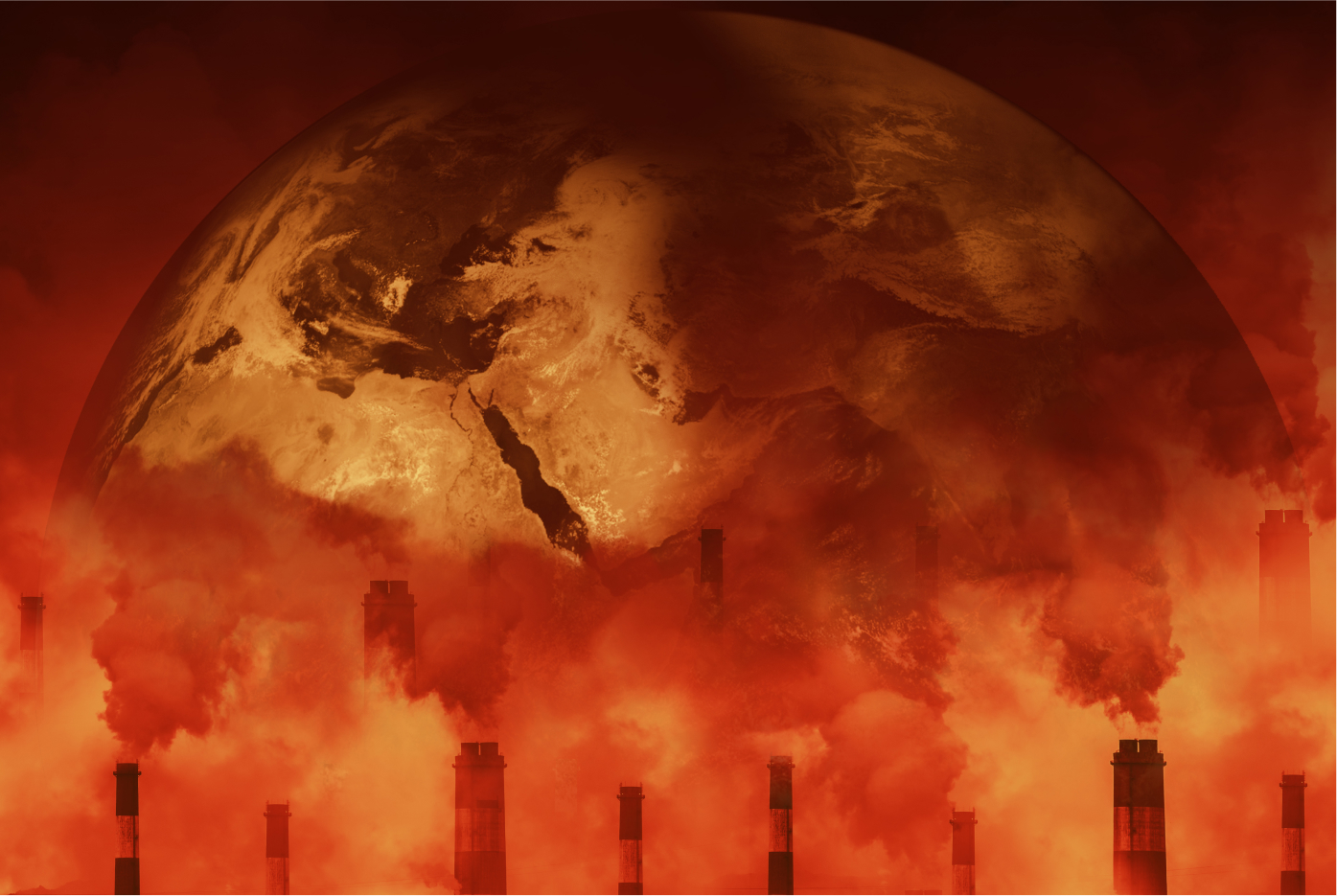The Intergovernmental Panel on Climate Change (IPCC) is a 195- member body of the United Nations that was established in 1998 by the World Meteorological Organization (WMO) and the United Nations Environment Programme (UNEP). The main objective of IPCC is to assess the science related to climate change and to provide political leaders with periodic scientific assessments concerning climate change, its implications and risks, as well as to put forward adaptation and mitigation strategies. The IPCC assessments provide a scientific basis for governments at all levels to develop climate related policies, and they underlie negotiations at the UN Climate Conference – the United Nations Framework Convention on Climate Change (UNFCCC). The assessments are policy-relevant but not policy prescriptive. To know more, click here.

WHAT DOES IPCC DO?
IPCC produces various reports, including assessment reports, special reports and methodology reports, which are widely accepted scientific evaluations on climate change by governments, world leaders, corporations and other industry experts. IPCC does not conduct its own research but experts and scientists across the globe volunteer their time to produce the reports.
IPCC operates in an assessment cycle to produce assessment reports and its other work products. The assessment reports produced by IPCC are comprehensive reports about the state of scientific, technical and socio-economic knowledge on climate change, its impacts and future risks, and options for reducing the rate at which climate change is taking place. Whereas special reports are reports on topics agreed to by its member governments, and methodology reports provide guidelines for the preparation of greenhouse gas inventories.
SIXTH ASSESSMENT CYCLE OF IPCC

Comprehensive scientific assessment reports are published every 6 to 7 years. Since 1998, IPCC has completed five assessment cycles. In February 2015, the IPCC decided to produce a Sixth Assessment Report (AR6), which includes three Special Reports, a Methodology Report and the Sixth Assessment Report.
The year 2021-2022 shall remain extremely essential as IPCC has published its 3 assessment reports under its sixth assessment cycle, which have been labeled as ‘CODE RED FOR HUMANITY’. The synthesis report of AR6 is expected to be published in late 2022.
A total of 782 experts and scientists were a part of the author team for Sixth Assessment Cycle Reports. Out of this, around 32 authors are Indians.
CLIMATE CHANGE 2021: THE PHYSICAL SCIENCE
The first assessment report was published under the sixth assessment cycle on 9 August 2021. This report provides the latest assessment of scientific knowledge about the warming of the planet and projections for future warming, and assesses its impacts on the climate system. The report warns that the average surface temperature of Earth will cross 1.5°C limit over pre-industrial levels in the next 20 years, and 2°C by 2050, without any extreme and aggressive reduction of carbon emissions.
The report raises certain alarming bells for India, including that heatwaves and humid heat stress shall be more intense and frequent in the 21st century, and the average sea surface temperature of the Indian Ocean has warmed faster than the global average temperature, and is expected to keep rising. The report has highlighted that rapid change in the monsoon precipitation is also expected, leading to an increase in both annual and summer monsoons. The Indian government has welcomed the finding of this report and has called upon the developed countries to undertake immediate, deep emission cuts and decarbonisation of their economies.
CLIMATE CHANGE 2022: IMPACTS, ADAPTATION AND
VULNERABILITY
This report is the second part of the AR6 published on 28 February 2022, and it assesses the impacts of climate change, looking at ecosystems, biodiversity, and human communities at global and regional levels. It also reviews vulnerabilities and the capacities and limits of the natural world and human societies to adapt to climate change. This report has also led to a path of climate resilient development.
The report raises certain alarming bells for India, including that India is considered as one of the most vulnerable countries, with 35 million people facing annual coastal flooding by 2050 while 45-50 million are at risk by the end of the century. Rising sea levels and ground water scarcity will have a direct impact on the Indian agriculture sector. Further, the report highlights that urban India is at greater risk than other areas with a projected population of 877 million by 2050, nearly double of 480 million in 2020. The Indian Government has welcomed this report as well stating that it reaffirms India’s call for equity and climate justice and stated that the developed countries must take the lead in urgent mitigation and providing finance for adaptation, loss and damage.
CLIMATE CHANGE 2022: MITIGATION OF CLIMATE
CHANGE
This is the third and the last assessment report released in the sixth assessment cycle of IPC published on 4 April 2022, which provides an updated global assessment of climate change mitigation progress and pledges, and examines the sources of global emissions. It explains developments in emission reduction and mitigation efforts, assessing the impact of national climate pledges in relation to long term emission goals.
The report highlights that without immediate and deep emissions reductions across all sectors, limiting global warming to 1.5°C is beyond reach. Accelerated and equitable climate action in mitigating and adapting to climate change impacts is critical to sustainable development. The Indian Government has welcomed this report, noting that that the historical responsibility of developed countries for consuming the carbon budget is scientifically established by the report, and called for the need of taking deep and urgent global emissions reduction.



